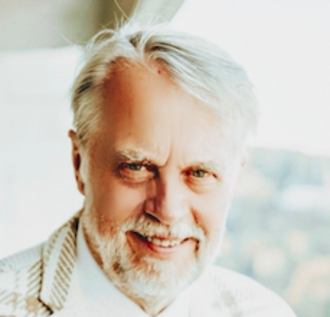Dr. Paed. Søren Ehlers

What excites you about adult learning and education?
"The field - understood as lifelong learning - is growing all over the world. Some scholars argue that the activities are going down. However, I disagree. Lifelong learning as a transnational policy is having success. There are of course many problems, but they are mainly implementation problems. The course seems to be right."
Why did you choose to do research in the field of adult learning and education?
"I am trained as a historian and for this reason involved in mapping social changes over time. It is a wonderful challenge to study the implementation of lifelong learning all over the world. What is going on? Why are the results so different when we doing comparisons? How can I explain the ups and the downs?"
Søren Ehlers, Dr. Paed. is Chairman at the Center for Lifelong Learning, University of Science & Technology, Meghalaya and Distinguished Professor at the International Institute for Adult & Lifelong Education, India. He has been teaching and doing research at Aarhus University Denmark and in other Danish institutions and has been travelling widely for the same, all over the globe and has many publications and projects to his credit including the first Masters in Lifelong Learning (MALLL) in Europe.
- Comparative studies
- Working with sources in research
- Individual learning accounts
- Policies for increasing participation of adults in learning
- Transitions in adult learning
- Education policies of international organisations
- Danish folk highschools
CG 2: Transitions from Sectors of Adult Education to Systems of Lifelong Learning
Co-Moderators: Dr. Shalini Singh, Dr. Séamus Ó Tuama
Despite the commitment of most countries to provide lifelong learning opportunities to everyone as part of the Sustainable Development Goal 4 and UNESCO’s call for declaring lifelong learning a right for everyone, lifelong learning remains far from becoming a reality in most parts of the world. Its realisation requires an integration of education sectors (from early childhood to adults), education settings (formal, non-formal and informal), and policy areas beyond education to place the individual learner at the centre of everything with capabilities and conditions to learn throughout life. In most lifelong learning policies and initiatives, this idea is not reflected, especially when they are restricted to outcomes like enhancing the employability and productivity of the working age population. Still, most countries claim to be moving towards achieving Lifelong Learning for All in the long run and have been inducing policy change in favour of their own interpretations about lifelong learning.
Focusing on adults as the target group, this group work aims to develop participants’ understanding of
1) the differences between policies and concepts of adult education, adult learning, and lifelong learning;
2) prospects and challenges associated with the policy change from adult education to adult learning and lifelong learning;
3) consequences of such changes or avoidance of changes in policies for adult learners. Methodologically, participants will develop an understanding of the difference between policy terms, scientific concepts, professional ideas and practices regarding adult education, adult learning and lifelong learning and use them comparatively for analysing policies.
SINGH, S., SCHMIDT-LAUFF, S. & EHLERS, S. (2022). Transitions from adult education sectors to lifelong learning systems: A Comparative Study from Denmark, Switzerland, Germany and the European Education Area (S. 97 – 112). In. A. Grotlüschen, B. Käpplinger, G. Molzberger & S. Schmidt-Lauff (Eds.). Erwachsenenbildung in internationalen Perspektiven: Grenzen und Chancen. Leverkusen: Verlag Barbara Budrich.
SINGH, S., MOLINA-NAAR, M. & EHLERS, S.(2020). Policies for Professionalisation in Adult Learning and Education: A Comparative Study from India, Colombia and Denmark. Andragogical Studies 2020(2): 33-61.
SINGH, S. & EHLERS, S. (2020). Employability as a Global Norm: Comparative Study of Transnational Employability Policies from OECD, World Bank Group, UNESCO and ILO. In R. Egetenmeyer and V. Boffo (Eds.) International and Comparative Studies in Adult and Continuing Education, Firenze University Press: Florence.
EHLERS, S. (2019): The rise of a learning regime in Europe. Transnational policy terms mapped and discussed. In T. Fristrup (Ed.), Socially engaged practices in museums and archives. Fornvårdaren 38 (pp. 17–68). Østersund: Jamtli Förlag.


